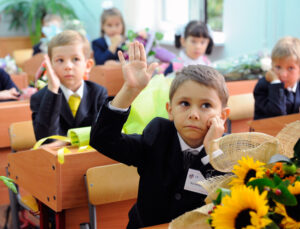How to Help a First Grader Adapt to School
The first grade of school https://argoprep.com/blog/k8/go-math-grade-1-vs-argoprep/ is one of the most difficult periods in the life of children. When entering school, a child is influenced by the classroom, and the personality of the teacher, and the change in the regime, and the unusually prolonged limitation of physical activity, and the emergence of new responsibilities.
Adapting to school, the child’s body is mobilized. But it should be borne in mind that the degree and pace of adaptation is individual for each, therefore, each child needs help and great patience from all surrounding adults.
The period of adaptation of a child to school including https://argoprep.com/blog/k8/go-math-grade-2-vs-argoprep/ lasts from 2-3 weeks to six months. It depends on many factors: the individual characteristics of the child, the type of educational institution, the level of complexity of educational programs, the degree of preparedness of the child for school, etc. The support of relatives – mothers, fathers, grandmothers and grandfathers is very important.
In the first days at school, a first-grader is faced with problems that must be solved by gathering all his strength. The child falls under the influence of such factors as: the personality of the teacher, the team of classmates, a new daily routine, limitation of physical activity, new responsibilities.
In response to new increased demands on the body of a first grader in the first weeks and months of schooling, children may complain of fatigue, headaches, irritability, tearfulness, and sleep disturbances. Decreases children’s appetite and body weight. There are also psychological difficulties, such as, for example, a feeling of fear, a negative attitude towards studies, a teacher, and a misconception about one’s abilities and capabilities. How can you help your child adapt to school including https://argoprep.com/blog/k8/go-math-grade-3-vs-argoprep-grade-3-workbooks/?
Recommendations for the psychological adaptation of a first grader:
– Create an atmosphere of well-being in the family. Love your child.
– Build high self-esteem in your child.
– Do not forget that your child is a value in itself for parents.
– Be interested in the school, ask your child about the events of each day.
– Spend time with your child after school.
– Avoid physical measures of influence on the child.
– Take into account the character and temperament of the child – only an individual approach.
– Observe what he is doing better and faster, and where help should be given, prompt.
– Give the first grader independence in organizing his own educational activities. Monitor appropriately.
– Reward the student for a variety of successes – not just academic. Encourage him to achieve his goals.
What advice is there to the parents of a first grader from a physiological point of view?
– Form a first grader’s daily routine, different from the preschooler’s daily routine, gradually.
– Make it a rule to follow the change of activities at home.
– Do not forget about regular physical education when doing your homework.
– Observe the correct posture of the student.
– Correctly light the place where the child is doing homework.
– Monitor the proper nutrition of the first grader. On the recommendation of a doctor, give vitamin preparations.
– Activate the child’s physical activity, hardening.
– Adhere to the rules of healthy sleep for your child – at least 9.5 hours.
– Limit the viewing of TV shows and games on the computer.
– Raise the child’s will and independence.
What should the parents of a first grader not do?
Wake up your child at the last moment before leaving for school;
Feed the child before and after school with dry food, sandwiches;
Do homework immediately after school;
Forcing the child to sleep in the afternoon after school and depriving him of this right;
Wait for mom and dad to start homework;
Sitting in front of the TV and at the computer for more than 40-45 minutes a day;
Watch scary movies before going to bed and play noise games;
Deprive of outdoor play due to poor grades at school;
Do not take wellness breaks while doing homework;
Do not show physical activity during free time from lessons.
Demand from the child only excellent good results in school, if he is not ready for them;
Yelling at a child in general and during homework in particular;
To force to rewrite repeatedly into a notebook from a draft;
Scold a child before bedtime;
Talking to a child about his school problems is evil and edifying;
Do not forgive the mistakes and failures of the child.
Do not disregard such a crucial moment as the beginning of school life. Help your child overcome the period of adaptation to school, support him, provide the necessary living and learning conditions and see how easy he will learn and how his abilities will be revealed.

Recent Comments